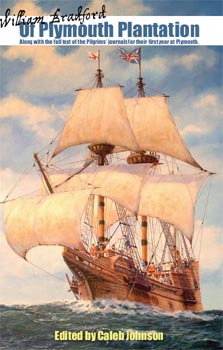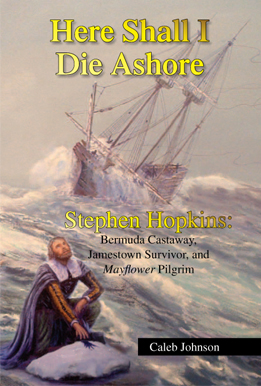In an article by Peter Evans appearing today in a wide range of newspapers including page A1 of the Wall Street Journal as well as Barrons , and commented on in USA Today , a "disagreement" between the English towns of Plymouth and Harwich is brewing. The premise of the article seems to be that Harwich believes it deserves more attention as the home of the Mayflower and her master, while the city of Plymouth in England is miffed at the additional competition to its claim-to-fame as the 400th anniversary of the Mayflower voyage quickly approaches.
To engage the controversy, the reporter states "The Mayflower was built and originally set sail from here [Harwich] before making an unscheduled stop at Plymouth [England]." This is factually incorrect. The place the Mayflower was built is entirely unknown (it could have been anywhere that built ships). And Harwich was never on the 1620 "itinerary" of stops: the Mayflower left London, went to Southampton to get provisions, then to Dartmouth (where the Speedwell was forced in for repairs), and finally to Plymouth, England (where they gave up on the Speedwell and moved everyone over to the Mayflower and sent others home). Harwich was in no way involved in the 1620 voyage from a physical stopover perspective.
The true 'claim to fame' for the town of Harwich, is as the undisputed hometown of the Mayflower's master, Christopher Jones, some of the crew (probably including cooper John Alden) and as the home port of the Mayflower from 1607 to 1611. Unmentioned by the article, or by the surrounding "controversy" is the fact that Master Jones, and the Mayflower, actually left Harwich in 1611 and took up residence in Rotherhithe, Surrey, England: a town which apparently has not managed to work itself into the controversy even though it was the true "home" of the Mayflower from late 1611 through 1620, and even through the burial of Christopher Jones there in March 1622.
I am quite happy that "Destination Plymouth" is organizing a 2020 celebration in England with invitations to former and current U.S. Presidents and the Royal Family. And that Harwich is building a $3.3 million replica of the Mayflower to sail as part of the celebration. There's enough room for everyone to celebrate. Let's not forget some of the other important places in England with ties to the Pilgrims: Scrooby, Droitwich, Henlow, Austerfield, Boston, Dartmouth, Southampton, Dorking, Great Yarmouth, Norwich, London, Hursley, Upper Clatford, ... the list goes on.
One other correction to an implication in the article. The headline, "Maybe it Should be Called Harwich Rock," implies that the reason the Pilgrims named Plymouth was in honor of the city they embarked from in England. Actually Plymouth was named by Captain John Smith (of Pocahontas fame) in 1614 during a mapping expedition in which he applied English place names to coastal areas in New England. The Pilgrims were using his maps, made six years earlier, when they arrived in 1620. They settled at a spot labeled Plymouth on his map.



